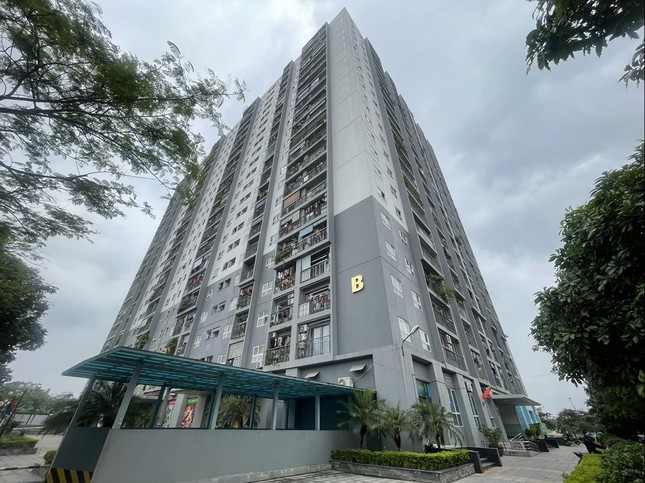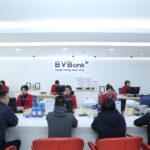Interest rates for home loans are currently around 5-6% for the first year, while investors are offered rates of 7-8%. However, there is low demand for credit from both individuals and businesses at this time.
Ms. Bich Thu from Dong Da, Hanoi, shared that despite her family’s need to upgrade from a two-bedroom to a three-bedroom home as their children grew older, she has been unable to purchase a new property for the past six months.
“The prices of new projects are too high compared to my family’s savings. A three-bedroom apartment would cost at least VND 5 billion. Although projects offer low-interest rates in collaboration with banks, these promotions only last for the first year. My family is worried about the floating interest rates in subsequent years, so I’ve given up on the idea of moving,” said Ms. Thu.
The leader of a real estate business in Hanoi also shared, “Our company hasn’t launched any new projects in the last two years, so we don’t have a demand for loans at this time.”

Reduced demand for home loans as real estate prices soar (Photo: Ngoc Mai)
According to leaders of several banks, low real estate transactions in the first half of the year can be attributed to stagnant demand for home purchases. This stagnation results from legal entanglements in multiple projects, a struggling market, economic hardships, slow income growth, and soaring property prices. The downturn in the hospitality industry, with tourist numbers still recovering from the COVID-19 pandemic, has also impacted lending in the retail sector.
Notably, according to Circular 22, which came into effect on July 1, 2024, commercial banks are only allowed to provide loans to individuals for the purchase of completed and ready-to-occupy residential properties. Some opinions suggest that this regulation creates challenges for the real estate market and limits individuals’ access to bank capital.
Vietcombank’s CEO, Nguyen Thanh Tung, shared the bank’s latest statistics, showing that as of June 17, new credit balances had only increased by 2.1% since the beginning of the year, with personal credit (mainly real estate loans) growing slowly.
A representative of Military Commercial Joint Stock Bank (MB) stated that banks are actively promoting lending for industrial real estate projects. These projects have largely overcome legal obstacles, and the State Bank has reduced the risk factor for industrial real estate credit from 200% to 160%, encouraging banks to lend in this sector.
Economist Can Van Luc pointed out that real estate credit accounts for one-fifth of the economy’s total credit balance. The early implementation of new laws, such as the Land Law, Housing Law, Real Estate Business Law, and Credit Institution Law, five months ahead of schedule, will contribute to the recovery of the real estate market. As a result, real estate credit, in particular, and banking activities, in general, are expected to improve in the second half of the year, especially with interest rates remaining low.
4 Factors Putting Pressure on USD/VND Exchange Rate in Q1/2024
With the currency exchange rate fluctuating in the first few weeks of 2024, Mr. Ngo Dang Khoa, Director of Foreign Exchange, Capital Markets and Securities Services at HSBC Vietnam, highlights four factors putting pressure on the USD/VND exchange rate in Q1/2024…
Banks Sacrificing Profits to Support the Economy
In 2023, the question “which bank has the lowest interest rates?” is being talked about more than ever. With the prevailing difficult economic situation affecting individuals and businesses, in line with the directive of the State Bank of Vietnam (SBV), banks have unanimously sacrificed their profits by reducing lending rates and introducing credit packages with interest rates as low as 0%.







































